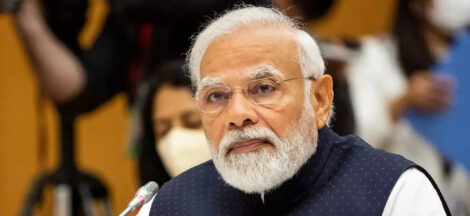By B. Sivaraman
The pace of events was amazing. On 25 October 2018, the New York Times carried an exposé on how Google top management handled sexual harassment complaints against their top executives. When sexual harassment charges surfaced against Andy Rubin, the creator of the Android mobile software, Google not only hushed up the matter but stealthily struck a deal for his resignation giving him a $90 million exit package, and gave him a hero’s farewell. The New York Times story also exposed that two other senior executives were given similar compromise payouts. Google employees were highly incensed at their own management rewarding the culprits instead of punishing them. Legally they could well have been dismissed without any “compensation” but still Google chose to hush up the matter after paying them hefty amounts.
The Google employees decided that enough is enough and wanted to give concrete expression to their anger in the form of a protest. They have no union. Google has been the best paymaster. The median salary of Google employees in the US at $161,409 per annum is the highest for any major tech company there. Hence, they never felt the need for a union. So, just seven employees first started organising on this issue in the next two days. The general consensus among employees at the Google headquarters in California was that they should come out and protest. Many took to the social media to voice their anger. Dedicated WhatsApp groups emerged. Google employees in other offices the world over were contacted through e-mail and phone calls. Suggestions poured in online on a charter of demands to be given to the management; five demands were concretised, and the charter took shape on Instagram. November 1 was decided as the day of protest. It was decided to stage a walkout that day. Employees from around 40 Google offices around the world — from Singapore to Chicago, Hyderabad to London — walked out of work and staged marches. The global march of Google employees against the attitude of the management towards sexual harassment at work became a reality. History was made within a week.
The world had never seen anything like this before. They didn’t have a conventional trade union and didn’t require one. Being the cream of the tech workforce, they could plan and coordinate their synchronised direct action across 40 major cities within a week. Labour organising took new forms.
The Google management was rattled so much that the CEO Sundar Pichai apologised: “I am deeply sorry for the past actions and the pain they have caused employees.” In a letter he wrote along with Eileen Naughton, a vice-president of the company, they also tried to reassure that the management would adopt a stern policy towards those accused of sexual harassment: “Over the past two years, we have terminated 48 people, including 13 senior managers and above for sexual harassment. None of these people received an exit package”. But this letter alone could not pacify the employees. Left with no alternative, the Google management had to endorse the walkout!
When the D-day dawned, the first march started in Singapore in the East. As the day progressed, marches in other cities approaching the West were live-streamed. Footages were uploaded on YouTube. Apps had been designed to track the marches and the employees were staring into their smart phones and sharing their own action experiences online. Transnational solidarity and action transcending national boundaries became a reality at the fingertips.
Men and women marched shoulder to shoulder. Unity in struggle considerably dissolved the gender divide in responding to the sexual discrimination and abuse. They no longer remained ‘women’s issues”. Men too were equally on board. It was a class united as one. The word union itself acquired a new expression as unified will, given expression through digital unionism—in which using message boards, contact and communication apps, and other social media devises which, ironically enough, they themselves developed for Google became their own tools of organising.
It was a march of the millennials. Most of the Google employees are in their twenties and thirties. In Google establishments, it is rare to come across a honcho in formal four-piece suits with a tie on. The youthful crowd that strolls around in faded jeans and T-shirts at the workplaces, however, came up with a stern message to the management. A new attitude reflected in their charter of demands, which included end to forced arbitration in cases of harassment and discrimination; commitment to end pay and opportunity inequality; a publicly disclosed sexual harassment transparency report; a clear, uniform, globally inclusive process for reporting sexual misconduct safely and anonymously; and promotion of the chief diversity officer to answer directly to the CEO and make recommendations directly to the board of directors. In addition, appointment of an employee representative to the board was also demanded.
It needs no elaboration that these demands went far beyond merely venting their anger. ‘Forced arbitration” is the common clause in the employment contracts, forcing employees to avoid taking recourse to a court of law to redress their grievances and use internal company arbitration instead. That an end to gender wage discrimination and the need for equality in opportunities between the sexes figured on top as the second important demand speaks for the new millennial values underlying the protest, catching up with the spirit ignited by the BBC women employees who demanded equal pay in recent times. The employees wanted institutional guarantees against retribution — the double victimisation of employees who report sexual misconduct — by seniors and higher-ups. They also wanted mechanisms to be put in place to sort out routine industrial issues and disputes.
‘Time’s Up’— this was one of the central slogans in the marches. Yes, time is up for those executive bullies who use the skewed power relations at work to exploit women employees who are their juniors sexually. In this sense, these marches of the millennials are for equal empowerment. They mark a new chapter in 21st century labour activism. (IPA Service)
The post Google Workers’ Global Marches Make History appeared first on Newspack by India Press Agency.


